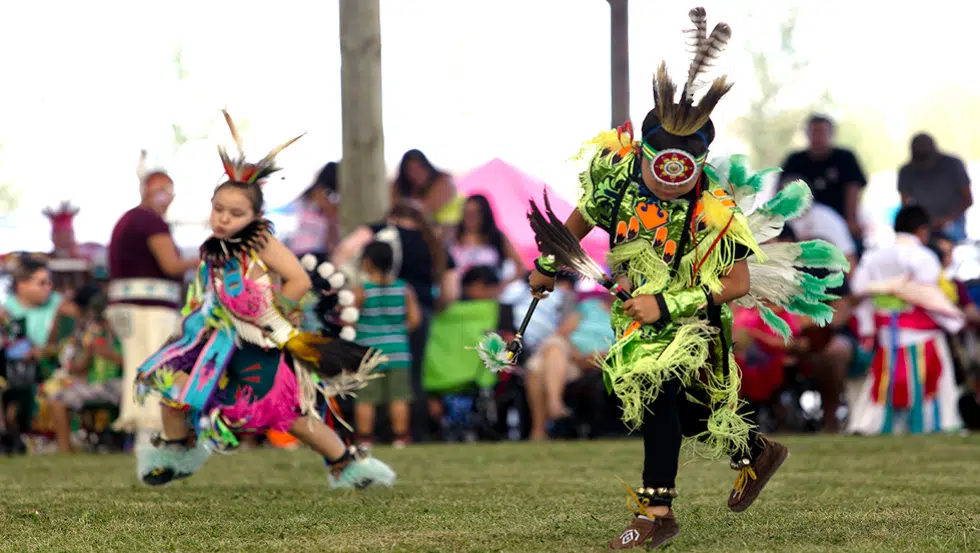
On the powwow trail: celebrating 25 years in Muskoday
Prohibitive legislation for more than 75 years seeked to eradicate the traditional cultural practices of Indigenous people in Canada. The Muskoday First Nation celebrated a milestone which in another life may have never happened; the 25th anniversary of their powwow.
Powwow committee president Margaret Bear, said the event on Saturday, Aug. 7 was months in the making, and celebrating their anniversary was made possible by help from Muskoday leadership.
“They’re behind us 110 per cent,” she said. “Without them the powwow would not be successful.”
According to Bear, Muskoday’s Chief, Austin Bear, brought powwow back to the community in 1991. She attributed the residential school system to the events’ long absence. The loss of language equalled a general loss of culture.


